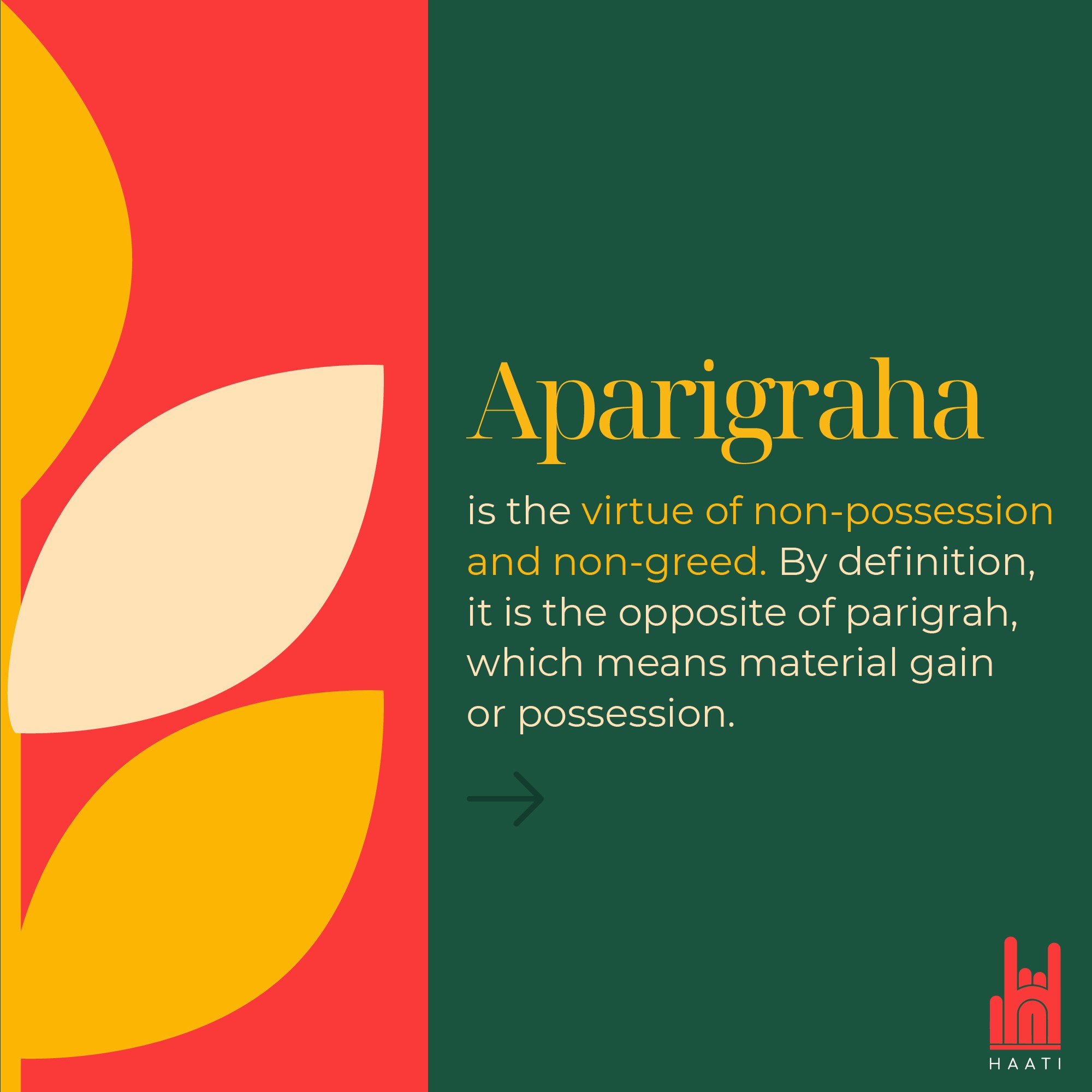
Decoding Sustainability
Answer to why should we consume consciously
In Buddhist, Jain and Hindu traditions within the subcontinent, many philosophical concepts overlap. One such concept is aparigraha. By definition, it is the opposite of parigrah, which means material gain or possession. Therefore, aparigraha refers to the virtue of non-possession and non-greed.
Specifically, aparigraha refers to keeping possessions limited to what is necessary or important, depending on one's life stage and context. It is a virtue that involves restraint from greed, to eliminate one’s own material gain or happiness derived by hurting, killing or destroying other humans, life forms or nature. It is a practice that is implemented throughout the course of life, and in being so, how different is it than striving for ecological sustainability? It encourages a mindful consumption of natural resources and promotes reducing waste. Not taking more than one needs is an act of protection, both for us and the planet.